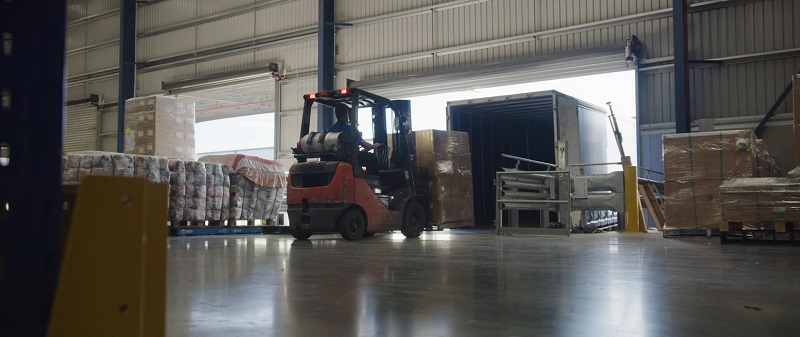In 2023, over 87% of U.S. companies agreed that international expansion is essential for long-term growth, according to Wells Fargo.
Yet, nearly 60% of global market entries fail due to non-product-related issues like regulatory hurdles, cultural misalignment, and operational inefficiencies.
A great product opens the door – but without the right strategy, partners, and compliance infrastructure, global success remains out of reach.
Understanding the Real Drivers of International Success
It’s a common misconception that a high-quality product guarantees global success. In reality, companies that thrive internationally invest in much more than product development – they master strategic alignment, market readiness, and local adaptation.
For instance, before entering a new market, successful businesses:
- Validate product-market fit through localized research.
- Adapt pricing and positioning to regional expectations.
- Align go-to-market strategies with local demand cycles and distribution channels.
According to McKinsey & Company, companies expanding internationally generated higher total shareholder returns (TSR) than their industry peers.
However, those with healthy growth in their home markets – a prerequisite for an exportable advantage – benefited twice as much, generating an additional 2.6 percentage points of annual excess TSR.
In contrast, those that struggled locally gained only 1.3 percentage points, not enough to offset the performance drag from the weak home market.
Ignoring these fundamentals leads to costly missteps. Consider Target’s failed expansion into Canada – not because of product flaws, but due to inaccurate market assumptions and logistical inefficiencies.
Ultimately, international success depends less on the product itself and more on how intelligently it’s delivered within each unique market.
Cultural Intelligence: The Secret Weapon in Foreign Markets
When expanding globally, one of the most underestimated yet critical success factors is cultural intelligence. Even companies with strong products and well-funded strategies have stumbled by failing to grasp the cultural fabric of their new markets.
Cultural intelligence (CQ) refers to the ability to understand, respect, and adapt to cultural differences – everything from communication styles and consumer behavior to negotiation tactics and business etiquette.
Take Starbucks’ failed venture into Australia as a cautionary tale. The company launched aggressively without adapting to the country’s unique coffee culture. Within eight years, it had shut down 70% of its stores, incurring losses of over $140 million.
The lesson? Even beloved global brands can’t afford to ignore local values and customs.
Businesses that prioritize cultural intelligence gain key advantages:
- More effective marketing tailored to local customs and language.
- Stronger trust and rapport with local clients, partners, and employees.
- Fewer compliance risks due to cultural missteps in contracts, messaging, or branding.
Companies like McDonald’s have succeeded by taking a “glocal” approach – blending global consistency with local relevance.
From offering McAloo Tikki in India to Teriyaki Burgers in Japan, they demonstrate that cultural fluency can translate directly into market success.
View this post on Instagram
In a global marketplace where reputations are fragile and first impressions matter, investing in cultural intelligence isn’t optional – it’s a competitive edge.
Regulatory and Compliance Complexities in Global Markets
Expanding into a foreign market isn’t just a logistical challenge – it’s a complex legal and regulatory undertaking. Every jurisdiction introduces new rules around employment, taxation, procurement, data privacy, and corporate governance that can overwhelm even seasoned operators.
In PwC’s 2025 Global CEO Survey, 42% of CEOs stated that shifts in the regulatory environment are having the greatest impact on their company’s economic viability – more than any other external factor.
Key compliance challenges global businesses face include:
- Navigating foreign labor laws and classification rules
- Adhering to local tax structures and reporting standards
- Complying with multilingual government documentation
- Meeting regional data protection regulations like GDPR
This is where a trusted government contracting service becomes essential. From translating regulatory documents and employment contracts to ensuring your bids meet language and formatting requirements for public tenders, such services help eliminate friction and prevent costly errors.
Particularly in regulated industries like defense, energy, and infrastructure, the ability to communicate accurately and comply swiftly with legal standards can make or break your market entry.
Ultimately, compliance is not just a checklist – it’s a strategic advantage that clears the path for confident and lawful growth.
Building a Localized Talent Strategy for Sustainable Growth
Talent is the engine of international expansion – but not just any talent. To succeed in new markets, companies must go beyond importing their home-country workforce and instead build a local talent strategy that’s rooted in regional expertise, culture, and expectations.
Hiring local professionals gives you more than language fluency – it provides insider market knowledge, cultural nuance, and compliance assurance. It’s also often more cost-effective than relocating staff across borders.
Benefits of a localized talent strategy include:
- Faster market integration thanks to local hires who understand consumer behavior.
- Stronger employer brand built through regional trust and presence.
- Smoother regulatory navigation, as local HR professionals are familiar with labor laws, compensation norms, and benefits structures.
Netflix, for example, strategically established its European HQ in Amsterdam to access multilingual, culturally aware talent. This enabled them to better understand regional viewer preferences and tailor their content accordingly – a key driver of their global success.
In an era of remote work and global collaboration, it’s also essential to create inclusive cross-cultural teams. Training programs, multilingual onboarding, and local HR support systems help ensure alignment across time zones and backgrounds.
Ultimately, a global business must think like a local employer. Doing so isn’t just ethical – it’s strategic, scalable, and sustainable.
Infrastructure, Logistics, and Operational Pitfalls Abroad
Behind every successful international launch is a web of carefully orchestrated logistics. Yet, infrastructure challenges and operational missteps remain some of the most frequent – and expensive – barriers to sustained global growth.
From warehousing and transportation to customs clearance and last-mile delivery, the physical movement of goods and services across borders can introduce major inefficiencies if not properly planned.
Add in time zone differences, local regulations, and inconsistent vendor reliability, and the risks multiply quickly.
Common operational challenges include:
- Import/export restrictions, unexpected tariffs, and compliance delays
- Limited transportation infrastructure in certain emerging markets
- Uncoordinated internal systems, such as incompatible ERPs or outdated logistics software
- Lack of transparency in local supply chains, leading to delays or increased costs
DHL, a global logistics leader, emphasizes that efficient supply chain planning and strong local partnerships are critical to reducing costs and improving service reliability.
Their insights stress the need for agility, data-driven planning, and proactive vendor management when entering new territories.
To avoid disruptions, businesses should:
- Conduct thorough logistics feasibility studies before market entry
- Partner with trusted local providers for warehousing and transport
- Invest in digital infrastructure to synchronize multi-market operations
- Establish clear contingency plans for customs delays and supply disruptions
Ultimately, a brilliant product means little if it can’t reach the customer. Logistics and infrastructure are the foundation that allows global strategies to scale.
The Role of Strategic Partnerships and EORs in Market Entry
No matter how ambitious your global expansion goals are, attempting to navigate foreign markets alone is a recipe for delays, overspending, and legal risk.
That’s why strategic partnerships and Employer of Record (EOR) services have become indispensable tools for companies entering new regions.
An EOR acts as a legal employer on your behalf in foreign markets – handling everything from payroll and benefits administration to employment contracts, tax filings, and compliance with local labor laws.
This enables you to hire international talent quickly without setting up a legal entity, saving both time and resources.
Key benefits of leveraging EOR and strategic partners include:
- Rapid market entry with minimal administrative overhead
- Localized HR and payroll management, ensuring full legal compliance
- Access to legal and tax experts across jurisdictions
- Focus on core business functions while external partners manage back-end complexities
A well-chosen EOR partner can also assist with:
- Visa sponsorship and immigration services
- Drafting multilingual employment contracts
- Managing regional employee benefits and equity plans
- Scaling teams across multiple countries with centralized oversight
As global employment becomes more decentralized, modern EOR providers offer tech-powered platforms to handle onboarding, compliance alerts, and employee lifecycle management in one place – making them ideal for startups and enterprises alike.
In today’s landscape, success abroad depends not only on your product and team, but on the network you build to support your expansion.
Strategic partnerships like EORs reduce friction, ensure compliance, and allow your company to grow globally without losing focus locally.
Conclusion: Winning Globally Requires More Than Innovation
In today’s interconnected world, a great product is just the entry ticket – not the game plan – for international success.
Companies that excel globally do so by mastering cultural intelligence, navigating regulatory complexity, building localized talent strategies, solving logistics challenges, and partnering with experts like EOR providers to scale compliantly.
Whether you’re entering Europe, Asia, or Latin America, global expansion is not just about growth – it’s about adaptability, precision, and partnership. Businesses that recognize and prepare for this complexity early on are the ones that thrive, not just survive, in the international arena.

Hey, I’m Derek Vaughn. I love exploring how tech, business, and productivity come together to shape the way we work. At PulseBlueprint, I write about tools, trends, and strategies that actually make a difference—no fluff, just real-world insights.











